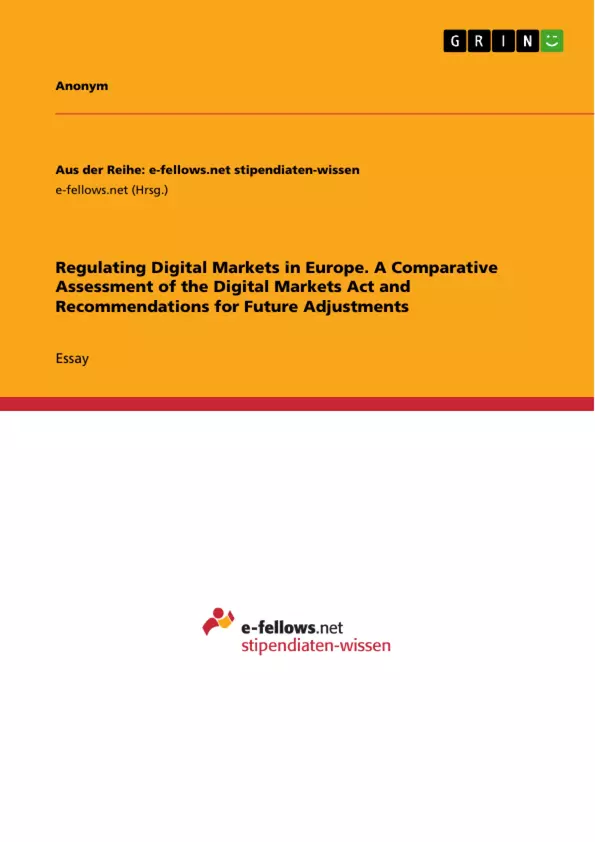This essay examines the development of competition law in digital markets. In particular, it highlights the challenges posed by the specific characteristics of digital markets. Further, it explains the operating principles of the Digital Markets Act and compares it with s.19a GWB. It examines the functioning of both laws with regard to their respective advantages and disadvantages and develops a recommendation on how the DMA should be adapted in the future.
For decades, arts.101 and 102 TFEU have been the main rules for EU competition authorities to prevent companies from engaging in unfair and anti-competitive practices. Now, with the Digital Markets Act ("DMA"), a new set of rules has come into force in 2023 to address such practices by companies operating in digital markets, thereby seeking to ensure the contestability and fairness of these markets. The DMA, which also aims to simplify and speed up procedures, moves away from the case-by-case analysis of competition law, where competition authorities sanction infringements of arts.101 and 102 TFEU ex post. Instead, the DMA adopts a more regulatory approach aimed at preventing certain practices in the first place. This was seen as necessary because of the enforcement problems posed by the specific characteristics of rapidly developing digital markets.
Inhaltsverzeichnis (Table of Contents)
- 1 INTRODUCTION
- 2 DEVELOPMENT OF COMPETITION PROTECTION IN DIGITAL MARKETS
- 2.1 COMPETITION LAW
- 2.2 DIGITAL MARKETS ACT
- 3 COMPARATIVE ANALYSIS: DMA AND GERMAN COMPETITION ACT (GWB)
- 4 SUMMARY AND OUTLOOK
Zielsetzung und Themenschwerpunkte (Objectives and Key Themes)
This essay aims to provide a comparative analysis of the Digital Markets Act (DMA) and its implementation in regulating digital markets in Europe, focusing on the challenges posed by the specific characteristics of these markets. It also explores the DMA's development in relation to previous competition law enforcement and provides recommendations for future adjustments.
- Evolution of Competition Law in Digital Markets
- Challenges of Regulating Rapidly Developing Digital Markets
- Comparison of the DMA with the German Competition Act (GWB)
- Potential Advantages and Disadvantages of the DMA
- Recommendations for Future Adaptations of the DMA
Zusammenfassung der Kapitel (Chapter Summaries)
- 1 INTRODUCTION: This chapter provides a brief overview of the DMA, its objectives, and its significance in regulating digital markets. It highlights the challenges posed by the rapid development of digital markets and the need for a more proactive regulatory approach.
- 2 DEVELOPMENT OF COMPETITION PROTECTION IN DIGITAL MARKETS: This chapter examines the evolution of competition law in digital markets, focusing on landmark cases involving companies such as Microsoft and Google. It explores the challenges of enforcing competition law in these markets, including the lengthy duration of investigations and the difficulty in proving dominance and abuse of dominance.
Schlüsselwörter (Keywords)
The key themes and concepts of this essay include digital markets, competition law, Digital Markets Act, German Competition Act, anti-competitive practices, market dominance, network effects, data usage, regulatory enforcement, and comparative analysis.
- Quote paper
- Anonym (Author), 2024, Regulating Digital Markets in Europe. A Comparative Assessment of the Digital Markets Act and Recommendations for Future Adjustments, Munich, GRIN Verlag, https://www.hausarbeiten.de/document/1502676


